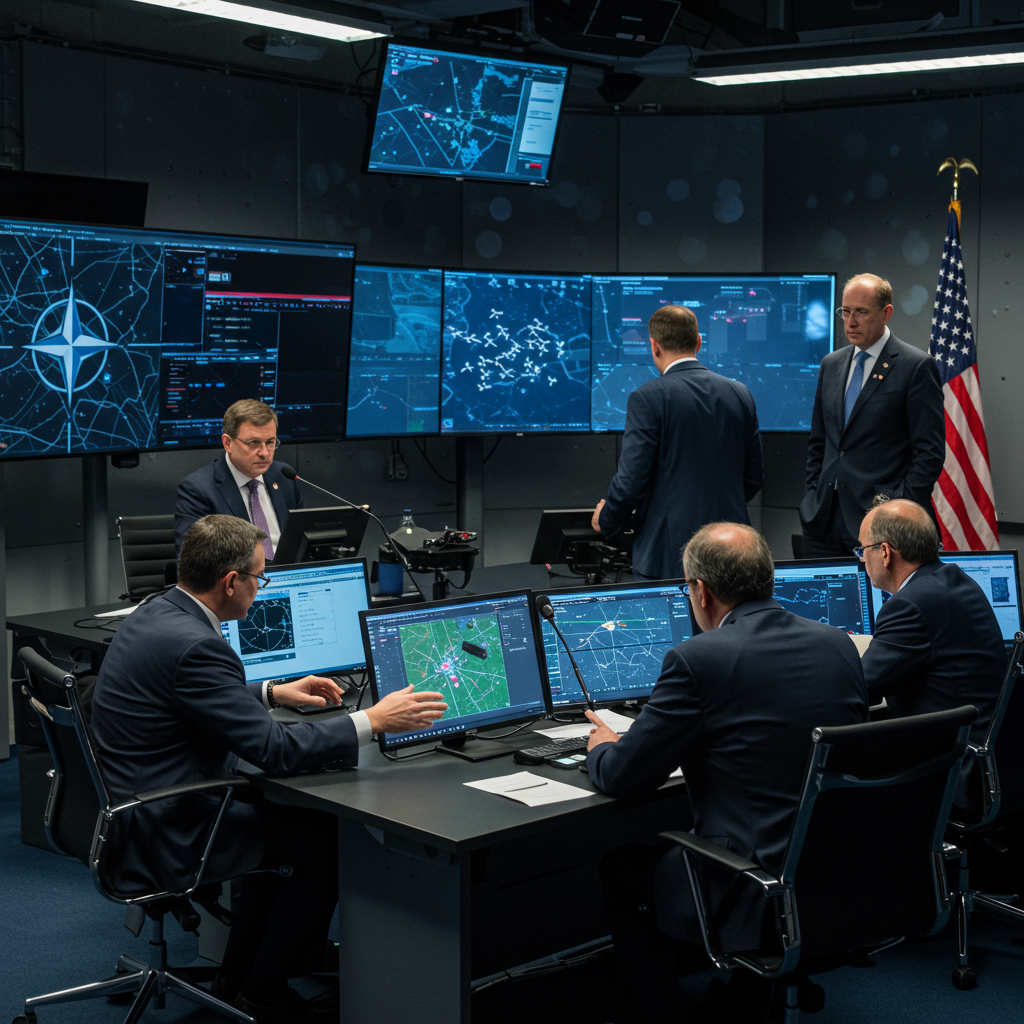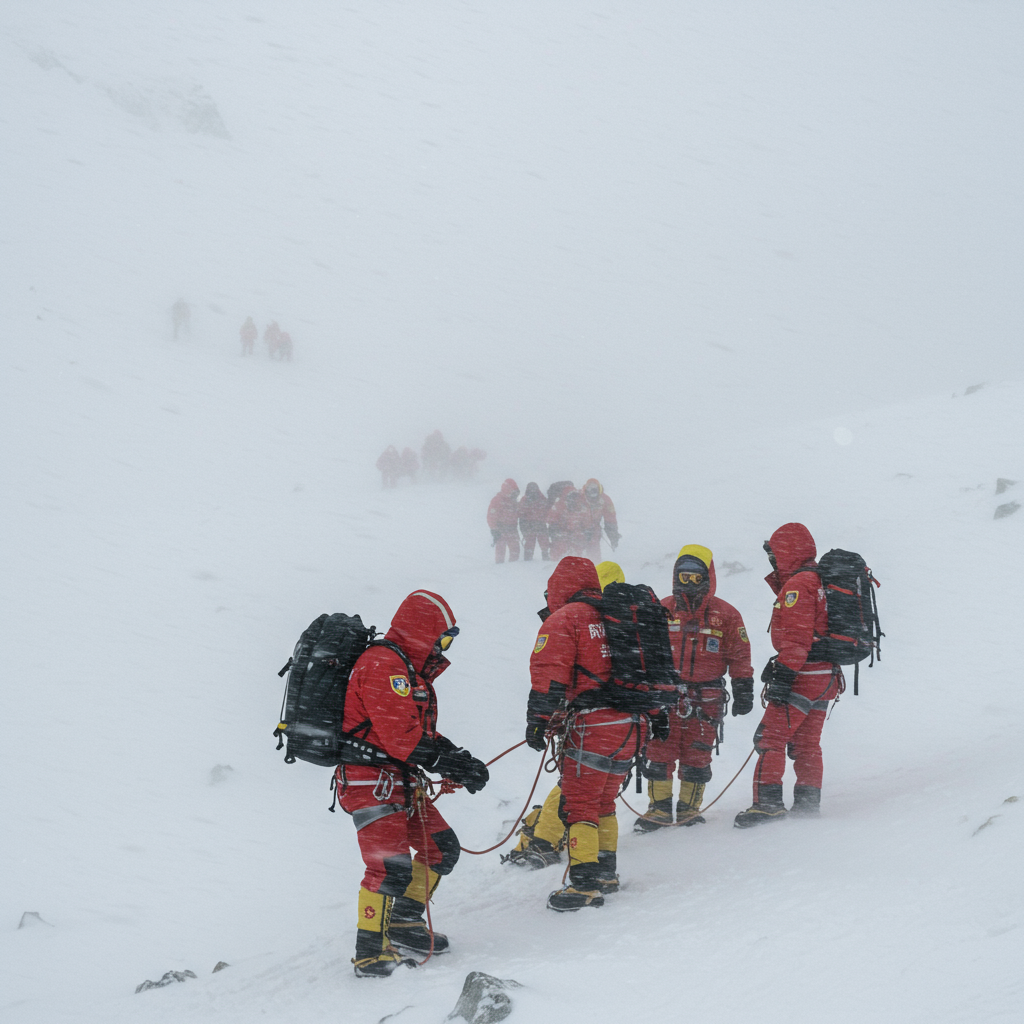A recent drone swarm targeting Poland has sent shockwaves through the transatlantic alliance, igniting an urgent debate about NATO’s future and the bedrock of US commitment to European defense. As of September 2025, this pivotal moment forces a critical re-evaluation of long-standing security guarantees, questioning whether the alliance can withstand escalating geopolitical pressures. Experts on both sides of the Atlantic are now grappling with the profound implications for global stability and the very definition of collective security.
This incident, coming after years of simmering tensions, throws into sharp relief the difficult choices facing Western leaders. It directly challenges the perception of US reliability, a cornerstone of the post-Cold War order, and demands a definitive response to Russian aggression.
A Red Line Crossed: Russia’s Provocation in Poland
Early on September 10, 2025, a swarm of Russian drones penetrated Polish airspace, marking a dangerous escalation in the ongoing Russia-Ukraine conflict. This overt attack on a NATO member state brings to a head a crisis many leaders had hoped to defer. For centuries, a clear understanding existed regarding “laws of neutrality”: a nation directly supplying weapons to a belligerent could legally become a target itself. While Russia denies the attack, the message sent to the West is unmistakable.
The Calculus Behind Escalation
Vladimir Putin’s decision to strike Poland follows a period of calculated probing. He had ample reason to force a confrontation. Initially, the prospect of direct NATO, and especially US, involvement deterred Russia. American and allied forces could have swiftly crippled Russian supply lines in Ukraine, trapping their military. Putin understood that a full-scale war with NATO would be unwinnable, a catastrophic nuclear conflict destroying Russia itself. He meticulously avoided actions that might provoke a Western military response, despite his nuclear threats.
However, a shift has occurred. Putin has been waging a “shadow war” against NATO members for months. This campaign involves sabotage, arson, and even assassination attempts targeting European defense executives. These actions, aimed at increasing the cost and risk of aiding Ukraine, served as a test. The perceived lack of robust Western retaliation against this covert aggression likely encouraged Russia to bring its “shadow war” out into the open, directly challenging Article 5. Putin’s primary goals are clear: force Ukraine’s surrender by making foreign assistance untenable and, ultimately, achieve the collapse of the NATO alliance.
The Shadow of Self-Deterrence: America’s Hesitation
A critical factor contributing to this escalating dynamic is what some analysts term “American self-deterrence.” From the outset of the Russia-Ukraine war, US administrations, despite possessing detailed intelligence on Russian invasion plans, deliberately avoided any actions that could signal direct military involvement. They chose not to move ships into the Black Sea or deploy forces forward in Europe. This cautious approach was a conscious effort to prevent a wider war.
A Legacy of Restraint
This legacy of restraint has deep roots. Experiences like the protracted Afghanistan War, which became the longest conflict in US history, highlighted the immense human and financial costs of sustained foreign military engagements. Waning public support and the strategic pivot towards other global priorities often influence US decisions regarding direct military intervention.
During the Ukraine conflict, even as Russia’s invasion proved disastrous and its forces became vulnerable, the US remained cautious. It supplied weapons to Ukraine but often with significant restrictions on their use, always sidestepping any move that could be perceived as aggressive. This policy, while intended to prevent escalation, allowed Putin to gauge the full extent of American reluctance to engage directly. He survived moments of extreme peril, effectively understanding the limits of US intervention and strengthening his resolve to push harder against European defense.
The Trump Factor: Reshaping Transatlantic Security
The prospect of a new US administration, particularly under Donald Trump, looms large over NATO’s future. Trump has historically expressed skepticism about America’s security commitments to Europe. His previous stance prompted European allies to adopt strategies of appeasement, hoping to buy time or for Trump to leave office.
A New Era of Conditional Support?
Should a second Trump administration materialize, the landscape of transatlantic security could fundamentally shift. US Defense Secretary Pete Hegseth, in a hypothetical scenario, has outlined a foreign policy emphasizing that the US would no longer tolerate “an imbalanced relationship which encourages dependency.” He called for European nations to significantly increase their defense spending, potentially raising the military alliance’s guideline from 2% to 5% of GDP—a target even higher than current US expenditure.
Further, such an administration has indicated a transactional approach to alliances. It has been suggested that the US might view “returning to Ukraine’s pre-2014 borders as an unrealistic objective” and that “NATO membership for Ukraine” might not be a realistic outcome of any negotiated settlement. These pronouncements, coupled with a hypothetical withdrawal of US forces from Europe and the cancellation of defense training programs, could fundamentally undermine the credibility of NATO’s Article 5 collective defense guarantee. Some analysts fear such policies could effectively “liquidate NATO” operationally, even if it formally exists. The focus would shift to a 19th-century “spheres of influence” worldview, potentially at the expense of smaller states and democratic values.
Europe’s Crossroads: Demise or Renewed Purpose?
Despite the grave concerns, some experts offer a contrasting view: Russia’s drone attack on Poland, while an affront, could inadvertently strengthen NATO. Dr. Alexander Motyl, a professor specializing in Russia and Ukraine, argues that this incident is a significant strategic blunder by Putin. He contends that it forces Europe to confront reality, instilling a sense of urgency and compelling unconditional support for Ukraine. Motyl emphasizes that Europe’s security is intrinsically linked to Ukraine’s survival.
Forging a Stronger, Self-Reliant Alliance
Putin’s aggression, Motyl argues, decisively invalidates the primary argument against granting Ukraine immediate full NATO membership – that such a move would provoke Russian retaliation. Since Russia has already escalated by attacking a NATO border, it has demonstrated a willingness to escalate regardless.
This creates an opportune moment for NATO to decisively counter Putin’s perception of Western weakness. A credible and effective response, ideally European-led, could transform Putin’s provocation into a renewed sense of purpose. This involves a robust increase in weapons, intelligence, and air defense capabilities for Kyiv, alongside concrete steps towards Ukraine’s full Article 5 protection. Such a united European-led effort could prevent alliance paralysis, deter further Russian probes, and give NATO a “genuine raison d’être,” even if the US adopts a more peripheral role. This potential “Zeitenwende” (turning point) could lead to a more self-reliant Europe, integrating its defense industrial base and significantly increasing its defense spending to match the scale of the threat.
Navigating an Unpredictable Future
The drone attack on Poland marks a watershed moment for NATO. It exposes the alliance to its most severe test since its inception, forcing members to confront questions about shared purpose, collective defense, and the true meaning of solidarity. Whether this crisis leads to the slow decline of the alliance, as some fear, or galvanizes a stronger, more unified European defense remains to be seen. The choices made by leaders in Washington and across European capitals in the coming months will profoundly shape the geopolitical landscape for decades.
The debate highlights a critical juncture where the fundamental principles of collective security are being challenged by shifting US foreign policy priorities and a resurgent, aggressive Russia. The outcome will define not only NATO’s future but also the very architecture of global stability.
Frequently Asked Questions
What immediate event triggered the current debate about NATO’s commitment?
The most recent event sparking intense debate about NATO’s commitment is a Russian drone attack on Poland, occurring on September 10, 2025. This incident directly tests Article 5, NATO’s principle of collective defense, and forces member states, particularly the United States, to clarify their resolve in responding to overt aggression against an ally. It represents a significant escalation in geopolitical tensions and challenges the existing security framework.
How might a potential shift in US foreign policy impact European defense and NATO’s operational effectiveness?
A potential shift in US foreign policy, as outlined by hypothetical statements from a future administration, could profoundly impact European defense and NATO. This might include demanding European nations significantly increase their defense spending to 5% of GDP, suggesting that the US may not consider the restoration of Ukraine’s pre-2014 borders or Ukraine’s NATO membership as realistic goals, and signaling a more conditional approach to Article 5. Such changes could compel European nations to adopt a “Zeitenwende,” accelerating their efforts toward greater defense self-reliance and leading a more unified, independent European defense strategy within, or even outside, the traditional US-led NATO framework.
Could Russia’s aggression against Poland inadvertently strengthen NATO, despite concerns about US resolve?
Yes, some experts argue that Russia’s aggression against Poland, though provocative, could inadvertently strengthen NATO. Political scientists like Dr. Alexander Motyl contend that this act of escalation forces Europe to confront the reality of the threat, fostering a sense of urgency and solidifying unconditional support for Ukraine. By demonstrating Russia’s willingness to escalate regardless of perceived provocations, it invalidates arguments against greater European military integration and support for Ukraine. This could provide NATO with a renewed “raison d’être,” encouraging a European-led response that results in a more robust, self-reliant, and unified alliance.



